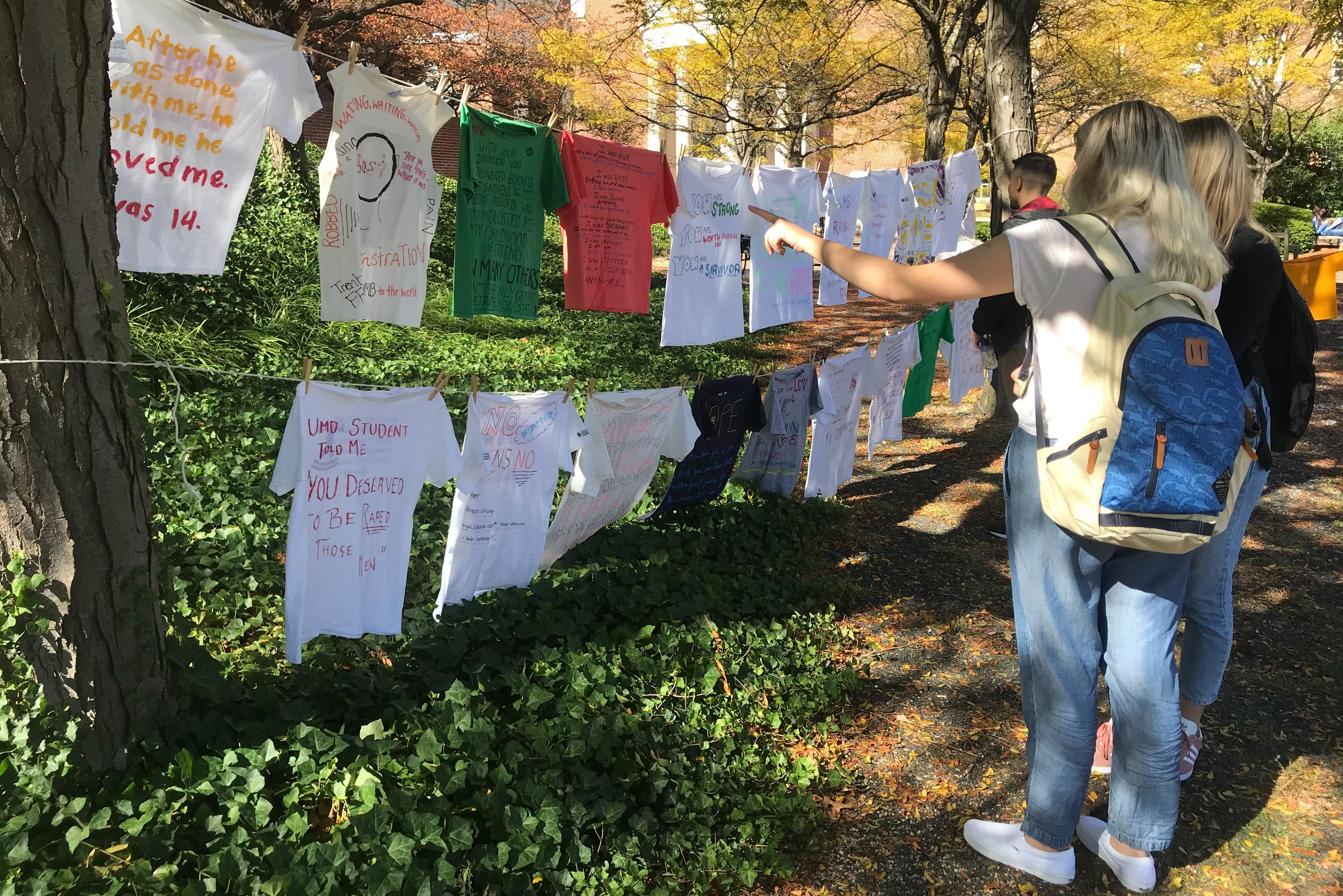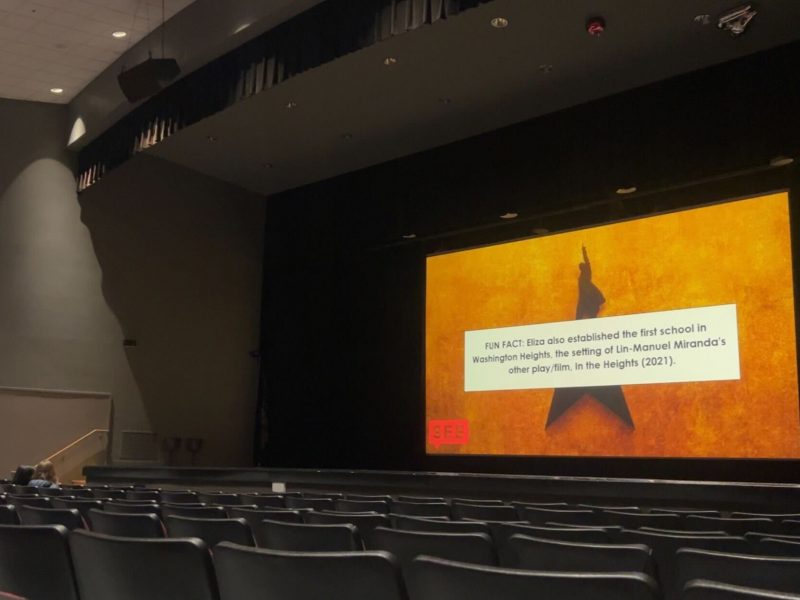It’s easy to walk through the University of Maryland’s campus while consumed in your own world. I am often guilty of blasting my music to block out conversations and constant construction — it can definitely take a lot to grab a drained college student’s attention.
CARE to Stop Violence aimed to do just that with the Clothesline Project on Wednesday. Centered in the heavily-trafficked Hornbake Plaza, different T-shirts — many of which featured messages about survivors’ experiences with sexual assault — lined the plaza’s circle. They surrounded students with a fabric barrier, resembling how survivors can be constantly reminded of their traumas.
Students had mixed reactions as they passed the shirts. While some would pause to read the emotionally charged messages, others funneled casually through the plaza. Many quickly looked away out of discomfort, and some continued panicked conversations about upcoming exams.
[Read more: Babushkas and painted nails: The bigger picture of hip-hop’s genderless style movement]
Despite the varying responses from students, the Clothesline Project was a judgment-free environment for survivors and observers alike. Students were encouraged to be understanding. As the shirts showed, all reactions and feelings were welcomed — everyone handles the heavy topic and experience of sexual assault differently.
“There are definitely people out there that see it, but pretend not to …We can’t really judge [their reactions]. We don’t know what they think or what’s going on with them,” said Lynn Truong, a junior environmental science and policy major and member of the Sigma Psi Zeta sorority, which was helping at the CARE event.
Whether people stopped to read the shirts, the Clothesline Project was an important visual reminder of how much work we must do to foster a safer environment on campus. It forced onlookers to acknowledge the strong people that walk this campus every day.
Some of the messages were too hard-hitting for people to ignore.
“Overly entitled son of a bitch. Go to hell, rapist,” stared me directly in the face as soon as I entered the wide-open space, putting an often-invisible issue on powerful display.
[Read more: UMD students weigh in on popular specialty grocery stores near campus]
The Clothesline Project also served as a reminder that it is impossible to generalize sexual assault. The stories on the shirts varied from very personal physical and emotional traumas to concern about the conflict in Darfur, Sudan. The display did the difficult work of portraying how widespread sexual assault and other forms of abuse can be.
“The first step to change is obviously just awareness,” said Christy Pahk, a sophomore bioengineering major and also a member of Sigma Psi Zeta.
Besides raising awareness, Pahk stressed how important it is to remind survivors that they are not to blame. Many shirts were painted with uplifting mantras including “You are loved” and “It’s not your fault.”
I was certainly reminded of the resilience that survivors have. Sharing trauma can be terrifying, and writing experiences for a community display can be even more overwhelming — and thanks to survivors’ bravery, the Clothesline Project was able to raise awareness about an issue that is unfortunately all too common, on campus and beyond.



